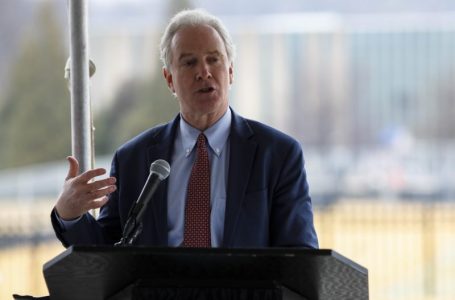A bullet — or bullet fragment — hit Trump during assassination attempt, FBI says
White House tackles concerns over Chinese interest in Middle East AI as firm tries to play both sides
The White House is expressing growing concern about China’s efforts to gain a foothold in the Middle East’s artificial intelligence (AI) market. China has already made significant investments in the Middle East, aiming to apply technology that will further its own geopolitical goals while helping its allies.
This has raised alarm bells in Washington, with analysts warning that the Chinese government could use AI technology to monitor and control citizens in the region. White House officials, while acknowledging the strategic significance of AI in the Middle East, are also looking for ways to ensure that the technology does not put the security of the United States and its allies at risk.
The concern is reflected in a recent report by the Defense Intelligence Agency, which warned that AI could be used to “monitor and gather intelligence on geopolitical challenges,” among other potential uses. The report noted that China had established a network of satellite-based AI systems that track military activities in the Middle East and had also “made significant investments in cyber-game technology, raising concerns about potential threats to US or allied interests.”
The White House has developed a program to counter China’s efforts. The program seeks to help countries in the Middle East to better understand the potential risks posed by China’s increased presence in their markets, as well as to develop safeguards that can minimize the use of AI technology for monitoring or other purposes that threaten US interests or the security of our allies. It also offers guidance on how to prevent Chinese companies from gaining a monopoly on the deployment of AI technology in the region.
At the same time, the White House is also trying to find ways to cooperate with China on AI. In particular, there is a focus on ensuring that Chinese firms comply with international standards on privacy and data protection. The goal is to ensure companies from both countries follow practices that create a level playing field and a safe environment where everyone can benefit from the technology.
Ultimately, the challenge for the White House is to balance the need to protect US and allied interests while finding common ground between the two countries where they can collaborate on AI. It is a difficult task, but one that is becoming increasingly important as China continues to push its ambitions in the Middle East.












